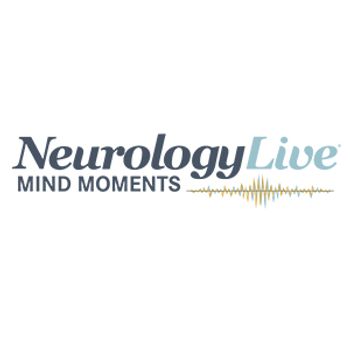
Real-world, observational cohort data suggest that Biogen’s nusinersen (Spinraza) is safe and effective in the treatment of spinal muscular atrophy.

Matt Hoffman, Editorial Director for NeurologyLive, has covered medical news for MJH Life Sciences, NeurologyLive’s parent company, since 2017. He executive produces the NeurologyLive Mind Moments® podcast, and hosted the Medical World News show Deep Dive. Follow him on Twitter @byMattHoffman or email him at [email protected]

Real-world, observational cohort data suggest that Biogen’s nusinersen (Spinraza) is safe and effective in the treatment of spinal muscular atrophy.

Preliminary data from the ASPIRO study of Audentes Therapeutics resamirigene bilparvovec gene therapy suggests it is safe with improvements in neuromuscular and respiratory function.

Pear Therapeutics’ Somryst intervention provides tailored neurobehavioral interventions intended to improve the symptoms of insomnia, via cognitive behavioral therapy and algorithm-driven sleep restriction.

The novel oxybate agent is seeking an indication for the treatment of cataplexy and excessive daytime sleepiness in those 7 years and older with narcolepsy. The PDUFA date is July 21, 2020.

Catabasis’s small molecule NF-kB inhibitor showed promise in phase 2, and the phase 3 PolarisDMD study (NCT03703882) of edasalonexant is fully enrolled and expected to read out in late 2020.

Axsome Therapeutics has accelerated the completion of its phase 2/3 trial of AXS-05 in patients with Alzheimer disease agitation, with top-line results now expected to read out in Q2 2020, a full quarter ahead of the prior scheduled time.

Data from the DELOS and SYROS studies of idebenone suggest that investigational DMD treatment has a treatment effect maintained for up to 6 years, which can reduce hospitalizations, bronchopulmonary adverse events, and systemic antibiotic use.

The chief medical officer at SK Life Science discussed what the clinical community needs to know with cenobamate headed to the market in the second quarter of this year.

Lead author Amrou Sarraj, MD, discussed the findings of an assessment of more than 1900 stroke centers and the challenges in EVT access for stroke care.

"Mind Moments," a podcast from NeurologyLive, brings you exclusive interviews with Barry A. Singer, MD, and Nina Riggins, MD, PhD.

The assistant professor of neurology in the Stroke Division and Department of Neurology at the University of Miami Miller School of Medicine spoke to the current limitations of advanced imaging to aid in the treatment of stroke.

Results from a study of 55 patients with temporal lobe epilepsy who underwent surgery suggest that resection may result in hippocampal atrophy and memory decline as a result of disruption of a memory network that includes the temporal lobe.

The assistant professor of neurology in the Stroke Division and Department of Neurology at the University of Miami Miller School of Medicine discussed the thrombolysis pro-con debate at ISC 2020, and the role of perfusion imaging.

Study data suggested that up to 80% of patients with Parkinson disease may have ophthalmologic symptoms, suggesting that wider use of early identification tools may improve timely treatment.

The oral calcitonin gene-related peptide receptor antagonist was approved in late February and comes in 8-tablet packs for treatment of 8 migraine attacks with a single, 75-mg dose.

A proof‐of‐concept assessment showed that women with chronic migraine and insomnia can be reasonably treated with digital cognitive behavioral therapy for insomnia, with data suggesting it may improve both conditions.

The Engage Therapeutics product met its primary end point in the StATES study, with an onset of action for ceasing seizure activity of approximately 30 seconds, on average.

Study results suggest that the plasma P-tau181 biomarker may be an effective noninvasive biomarker for Alzheimer disease, with prognostic and diagnostic value for use in both clinical practice and clinical trials.

Data suggests that access to endovascular thrombectomy centers within 15 minutes is limited to less than one-fifth of the population, pointing to a need for improved access and bypass methodologies.

The report suggests with moderate certainty that all 3 therapies offer a small or substantial net health benefit and with a high certainty of at least a small net health benefit.

SK Life Science’s newly approved treatment for partial-onset seizures is set to launch in the second quarter of 2020, after being designated Schedule V by the DEA.

Data collected with a tracking scanning laser ophthalmoscope suggests that the small, jerk-like, involuntary eye movements that occur during prolonged visual focus can provide measurements of disability and disease worsening in MS.

An analysis of pooled data from 3 longitudinal clinical trials suggests that SVD score, which can be compiled via a rapid visual assessment of clinical MRI scans, may be able to improve the prediction of dementia risk.

Impaired rhythm production and perception in patients with idiopathic REM sleep behavior disorder are correlated with early markers of Parkinson disease, according to study results.

The executive medical director of Medical Affairs/Clinical Development at Acorda Therapeutics spoke to recent pharmacokinetic data comparing inhaled levodopa (Inbrija) with oral carbidopa/levodopa.

A 6136-patient comparative study of fingolimod, rituximab, and natalizumab suggested that the former was associated with a borderline‐significant increased risk of cancer compared to the general population.

An overview on the Peer Exchange series, "Managing OFF Episodes in Parkinson disease."

This included the first 34 participants from the VISIONARY-MS study, which is currently ongoing with the orally delivered suspension of clean-surfaced, faceted gold nanocrystals.

Data from the CLARITY extension trial suggest that the durability of treatment with cladribine extended beyond 24 months in those with relapsing-remitting multiple sclerosis.

The neurologist at Cleveland Clinic’s Lou Ruvo Center for Brain Health spoke to the need for data on the proper sequencing strategies for patients with MS who are switching disease-modifying therapies.